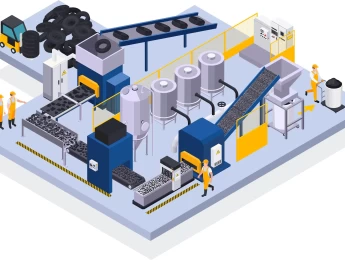Finances are always a vital factor to consider for any project, regardless of industry. Especially within construction, there are many aspects that will have a strong influence on the cost, and while some of these variables can be out of the contractor's control, many of them can be managed with effective cost management.
Cost management is the process of managing project finances, with multiple different stages. Planning, estimation, budgeting, and cost control. While these stages all hold their own level of importance, cost control is the main variable for construction. Cost control is when costs are being managed as a project is in motion and the process of dealing with issues as they occur. Cost control relies on constantly monitoring costs and taking the steps needed to reduce potential waste or expenses.
There should also be an understanding of how cost management will work in relation to EPCIC contracts. EPCIC mainly focuses on the employee's health and safety and makes the contractor liable for issues that need to be considered when creating cost management plans.
To be effective at cost control measures, one must be competent in creating resource management plans, cost estimation, monitoring costs accurately, and being highly knowledgeable on the terms of EPCIC contracts.
Upon completion of this course, participants will be able to:
- Develop an understanding of construction management.
- Evaluate what EPCIC is and its advantages.
- Comprehend the process of cost estimation.
- Explore different methods of cost estimation.
- Identify the elements that influence cost.
- Explore techniques for cost control.
- Recognise the vitality of cost management in construction.
This course is designed for professionals who aspire to develop their knowledge of project cost control measures and those with EPCIC contracts. It would be most beneficial for:
- Construction Managers
- Cost and Planning Managers
- Project Managers
- Sub-Contractors
- Property Developers
- Architects
- Engineers
- Site Supervisors
- Finance Managers
- Quality Surveyors
This course uses a variety of adult learning styles to aid full understanding and comprehension. Participants will review genuine examples of resource management plans, cash flow statements, and risk assessments to highlight what key information needs to be included and to recognise any areas that may cause potential issues.
They will be provided with the necessary tools required to carry out learning exercises related to cost control, which will help them develop a complete and well-rounded understanding of the content. They will analyse the given examples to identify what cost control measures have taken place and what steps were taken when expenses did not follow estimations. Participants will also partake in group activities to make their own cost estimation and resource management plans, aligned with the terms of their EPCIC contracts.
Day 5 of each course is reserved for a Q&A session, which may occur off-site. For 10-day courses, this also applies to day 10
Section 1: Introduction to Cost Management
- Defining cost management.
- The importance of cost management.
- Why cost estimating is beneficial in construction.
- Understanding design in the construction industry.
- Quantity take-off and measurement.
- Defining EPCIC and its role.
- Reviewing the stages of cost management – planning, cost estimation, budgeting, and cost control.
Section 2: Methods of Cost Control
- Creating and monitoring a resource management plan.
- Utilising change control systems.
- Effective time management.
- Carefully hiring only trusted and reliable sub-contractors.
- Procurement of materials.
- Focusing on utilising recyclable materials to prevent waste.
- Building an estimate.
- Planning the budget.
Section 3: Quality Control and Waste Reduction
- Using quality control methods to reduce waste.
- Evaluating cost control methods.
- Understand how wasted materials results in wasted budget.
- Closely monitoring quality to prevent waste.
- Communicating effectively with employees and sub-contractors to ensure productivity.
- Ensuring those involved are working in line with their EPCIC contracts.
Section 4: Documenting Costs
- Recording project cash flow.
- Technology trends in cost estimation and control.
- Setting project milestones and constant monitoring of them.
- Expense reports.
- Identifying expenditures as they occur and taking corrective action.
- Tracking earned value.
- Break-even analysis.
Section 5: Risk Management
- Assessing health and safety risks.
- Creating risk assessments and audits in relation to cost.
- Analysing risks and weighing possible detriment.
- Constructing solutions to risks minimising a negative impact on productivity.
Upon successful completion of this training course, delegates will be awarded a Holistique Training Certificate of Completion. For those who attend and complete the online training course, a Holistique Training e-Certificate will be provided.
Holistique Training Certificates are accredited by the British Assessment Council (BAC) and The CPD Certification Service (CPD), and are certified under ISO 9001, ISO 21001, and ISO 29993 standards.
CPD credits for this course are granted by our Certificates and will be reflected on the Holistique Training Certificate of Completion. In accordance with the standards of The CPD Certification Service, one CPD credit is awarded per hour of course attendance. A maximum of 50 CPD credits can be claimed for any single course we currently offer.
- Course Code IND04-112
- Course Format Classroom, Online,
- Duration 5 days














